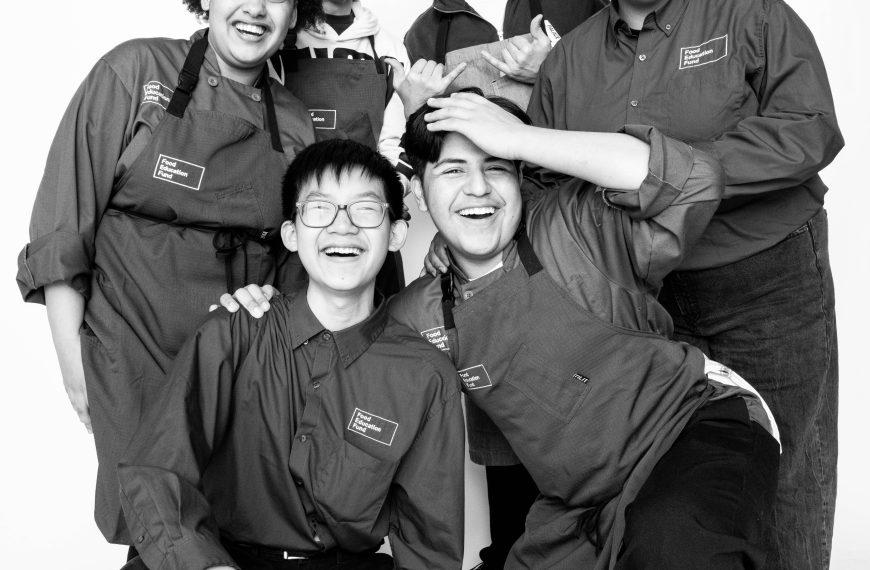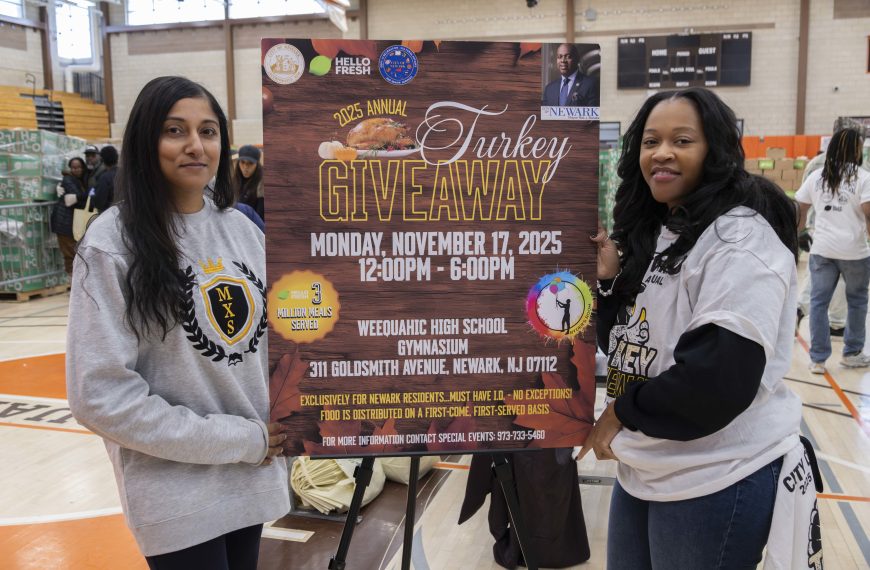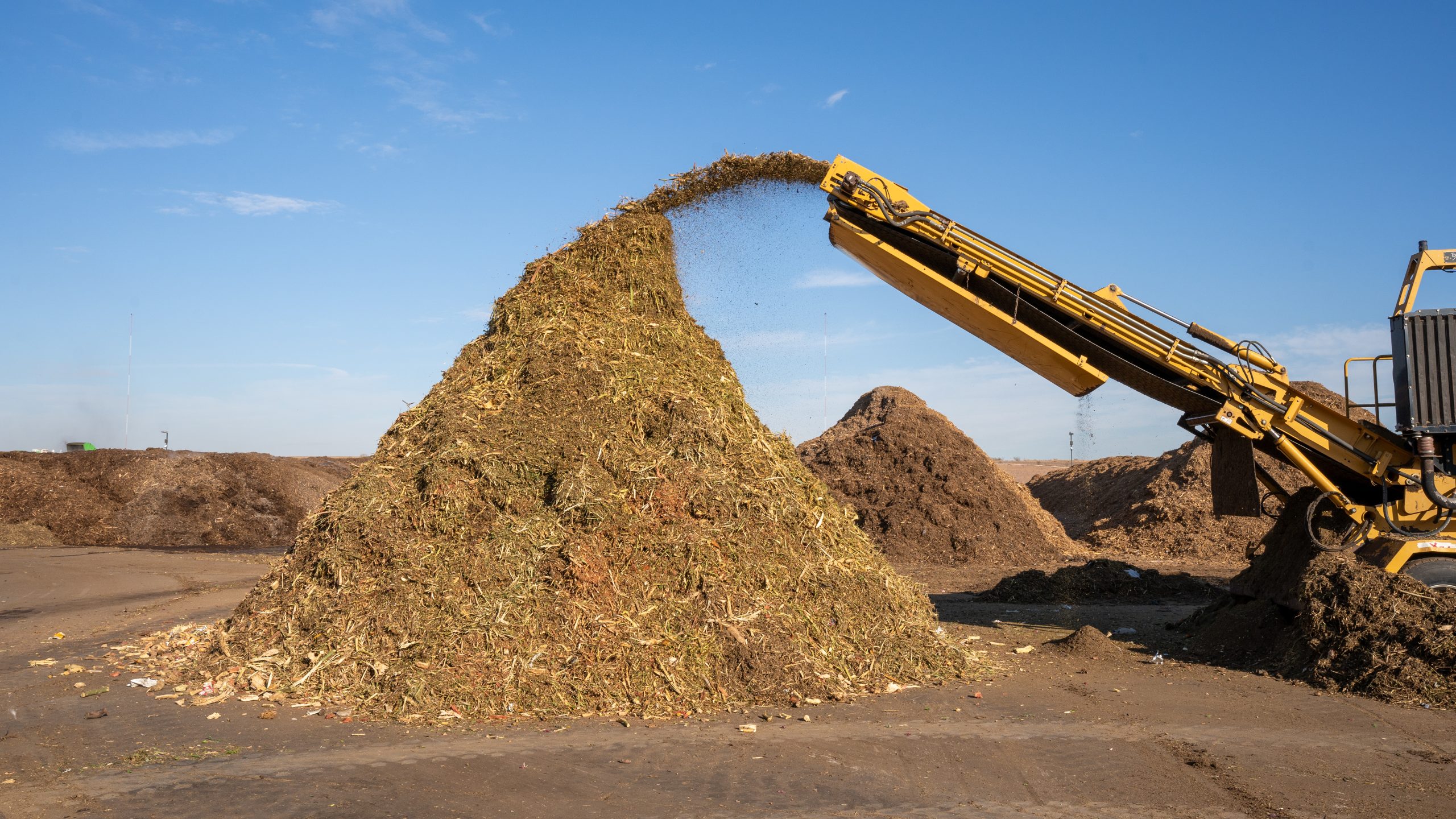
A machine mixes green waste and depackaged food waste to start the composting process at one of Denali’s facilities in Phoenix, Arizona.
At HelloFresh, we have a very strategic and impactful approach to not only help customers reduce their carbon footprint, but to also minimize food waste across all our production facilities where we curate our delicious meals. That’s why we’re excited to share our latest efforts that have resulted in repurposing nearly 4 million pounds of food waste throughout Arizona.
Our Packing Hubs
Phoenix, Arizona is one of the fastest growing cities in the U.S. – and it’s also a growing hub for our production facilities. Across the greater Phoenix area, HelloFresh operates two such facilities, and employs about 3,000 team members.
We’re proud to say that our food waste recycling initiatives have kept pace with this growth. In fact, our Phoenix operations are on track to reach a significant milestone: diverting 4 million pounds of food waste from local landfills by the end of 2024. This equates to preventing an estimated 1,307 tons of CO2 greenhouse gasses from entering the atmosphere, which is comparable to the emissions from driving more than 1.5 million miles in an average gasoline-powered vehicle.
To make this happen, HelloFresh works with Denali, a company that specializes in recycling organics — including food waste — across the U.S., along with Innovative Waste Recycling, a company that specializes in managing waste and byproducts for the food and beverage industry nationwide.
Our Phoenix production facilities work with Innovative Waste Recycling for the effective management of organic waste and byproducts. This involves continuous training and education for employees, as well as coordinating material collection, ensuring compliance with government regulations, hauling, conducting site evaluations, and performing audits. Innovative Waste Recycling also conducts regular product and byproduct reviews to drive continuous improvement and meet sustainability goals.
HelloFresh has worked with Denali to implement a cutting-edge depackaging process to not only keep packaged items and inedible food out of Phoenix landfills, but to transform the food waste into valuable products such as compost and animal feed, fostering a circular economy by reintegrating these outputs into agriculture throughout the state.
The Art of Depackaging
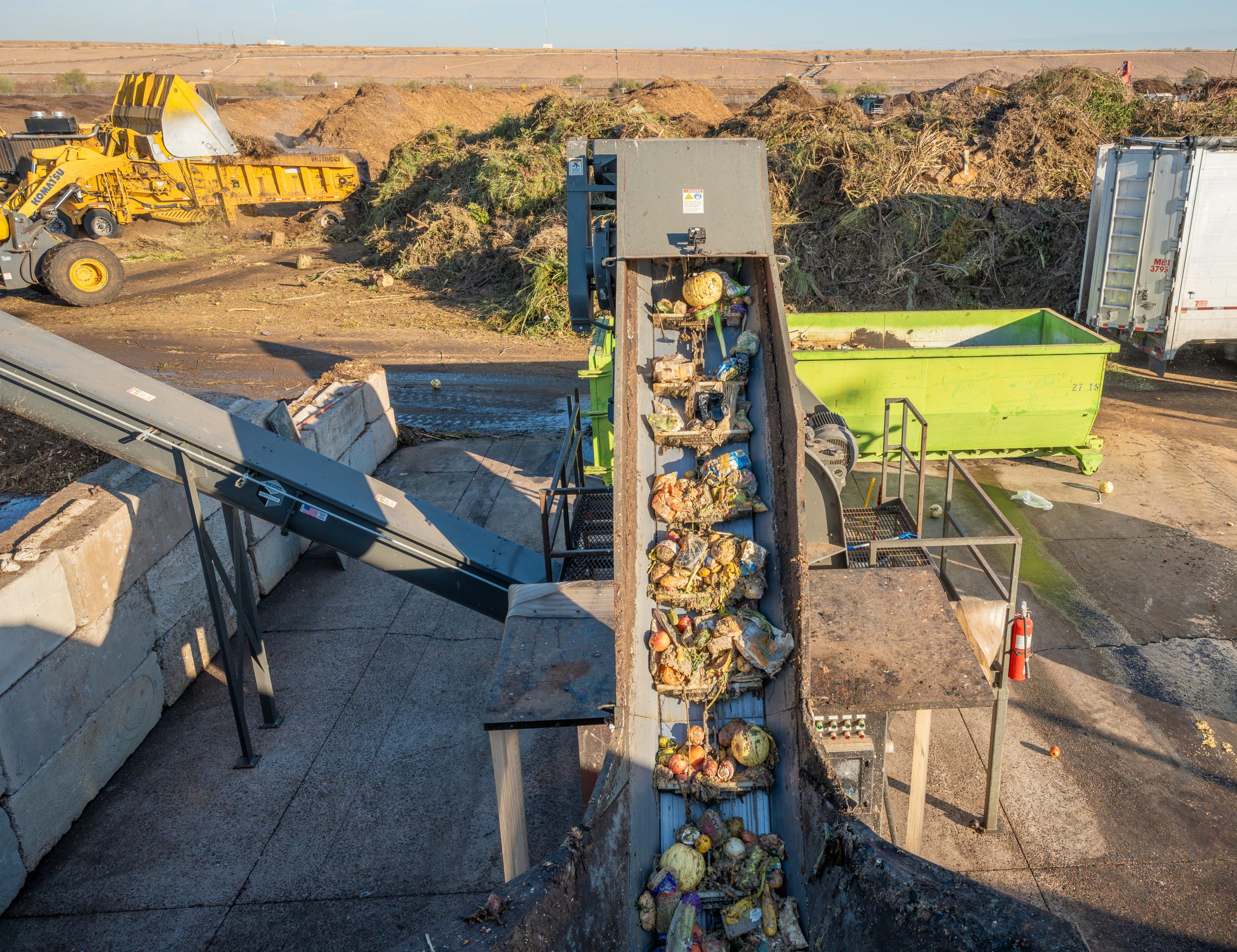
Food enters a Denali depackaging machine, where mechanical processes will separate plastic and cardboard containers from their organic contents.
Depackaging involves specialized machines that efficiently and cleanly separate organic contents from plastic, cardboard, and other packaging materials. As packaging exits one end of the machine, a clean slurry of food waste exits the other end, ready for further processing.
Denali mixes this slurry with green waste collected from Phoenix parks and yards to create compost, which is used to enrich area farms and gardens. This process not only reduces the volume of food waste in landfills, but also mitigates methane gas emissions, a potent greenhouse gas.
The Circular Economy in Action
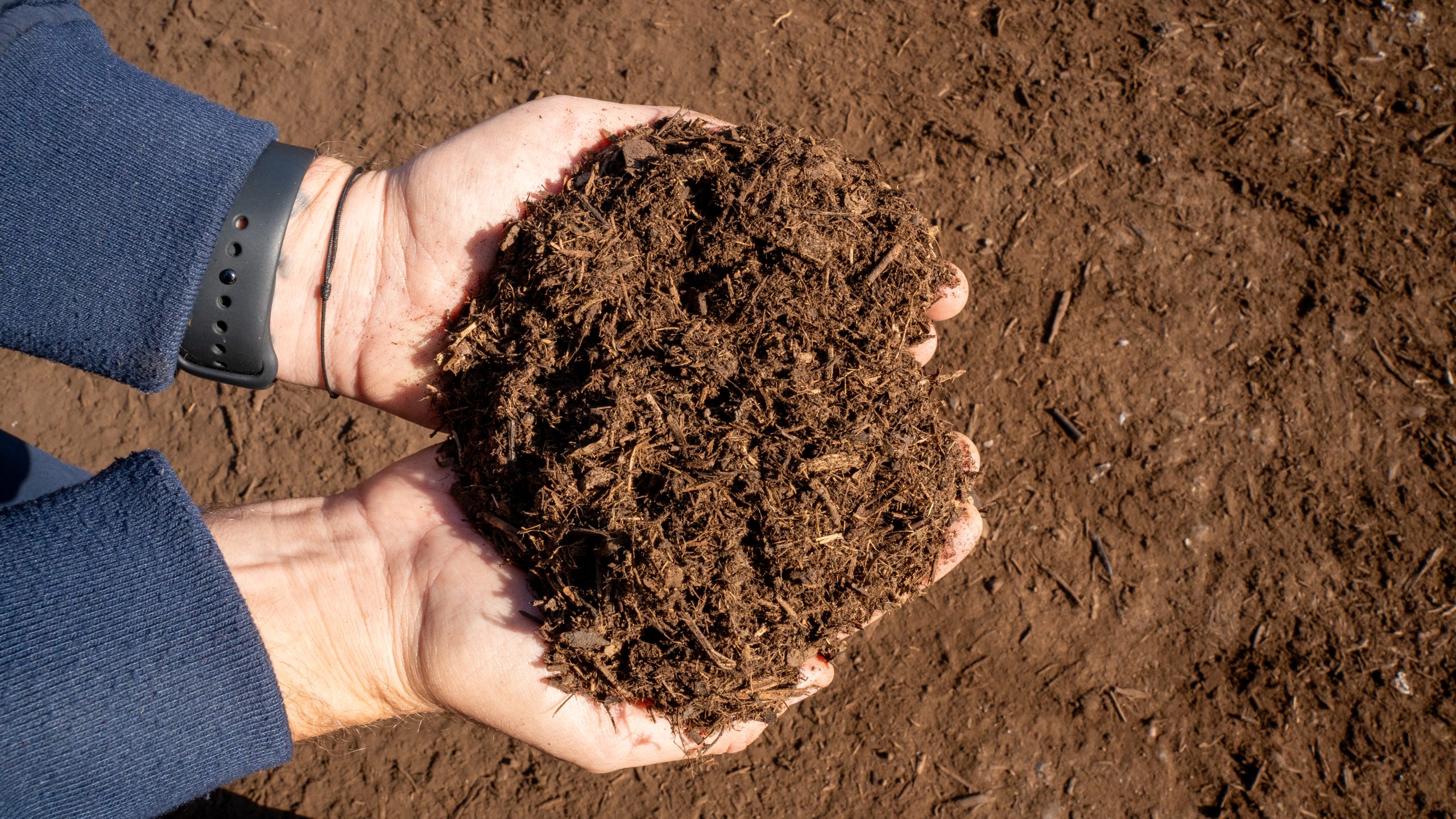
Finished compost made from food waste and green waste collected from Phoenix neighborhoods. This valuable soil amendment will be sold into the Arizona market.
The compost that Denali and HelloFresh create does not travel far. Once the compost has gone through a multi-week decomposition process and passed quality checks, it’s used to create bagged soil products or spread onto farm fields. This is incredibly beneficial since compost can improve the amount of moisture that garden soils and farm fields can hold. Soils amended with compost can often capture and retain more rainwater – prolonging water availability to plants. In turn, compost can reduce both fertilizing needs and water requirements which is crucial especially in the Southwest, where water conservation is key. This offers great advantages for both farmers and gardeners.
Annually, Denali creates about 20,000 tons of compost in Phoenix – equivalent to filling about one million retail bags. If you purchase a bag of soil or compost in Arizona, there’s a chance it contains nutrients recycled from HelloFresh!
The Path to Less Waste
Our Phoenix recycling program is one piece of our global strategy to reduce food waste. Our business model cuts down on food waste because we source just the right amount from our supply chain based on consumer orders instead of relying on demand estimates, which can lead to excess food inventory and unsold stock. Minimizing over-purchasing means that HelloFresh creates less waste compared to traditional food retailers. Our meal kits deliver pre-portioned ingredients that match each recipe precisely, which reduces leftovers and food waste at home.
At HelloFresh, our goal is to reduce food waste in our operations where possible and help our customers do the same at home. Between our production and supply chain innovations, as well as our work with partners like Denali and Innovative Waste Recycling to recycle inedible food, we are on a path to achieving this goal.
Learn more about our sustainability efforts here.


